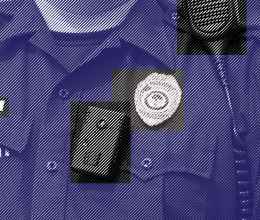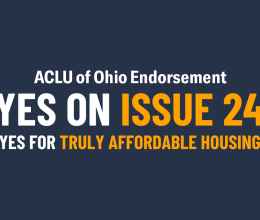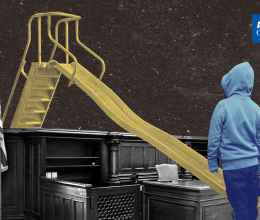Is policing really broken in America?
There are plenty of tweets, talking heads and letters to the editor agreeing that it is working just fine. They paint the national dialogue in a metaphorical black and white; obey the police and you won’t get shot.
This is a clean and convenient land of “if.” If he hadn’t walked there, talked back, been playing that way or talking on the phone, this would never happen. But communities across the country are coming together to have a different conversation.
If It’s Not Broken
More than 100 people gathered one recent Saturday on the Near East Side of Columbus to discuss what was happening around the nation. Those attending this Effective Steps for Resistance event had different reasons for arriving at a similar conclusion about police practices. Many agreed American policing is not broken. Rather, it is functioning exactly as intended.
Speakers opened this event by reminding the group that policing does not occur in a historical vacuum. It links slavery to Jim Crow and the War on Drugs. Racial profiling and police violence is another example of a system that creates laws and policies that criminalize, incarcerate and kill people of color.
Visit our Police Practices page. Follow the ACLU of Ohio on Facebook and Twitter for updates on local actions.
Some parents shared stories of talks with their black sons. This survival conversation has been passed down to them, linking generations by pulling together the past and present of racial injustice. These private discussions are now being heard in the streets and community centers around the country to form the collective demand that “Black Lives Matter.”
Shut It Down
The crowd broke into small groups to discuss plans for building sustained resistance to police violence. Some described the chain of events starting with the shooting of Michael Brown to this meeting as a collective political moment. Others were frustrated by being back in the same room where they talked about Trayvon Martin and are now discussing Tamir Rice. Some were tired of talking and wanted to take action.
For this collective political moment to evolve into a movement, those involved must have conversations about its survival. Issues of racial profiling, police militarization, and mass incarceration are all part of the evolving landscape of race in America. The details of individual cases should not distract from systemic patterns and practices that push people of color to the margins.
The audience came back together and shared their suggestions for how to maintain momentum and keep the pressure on. Community groups announced their ongoing projects and passed out cards with demands for police reforms.
Many went to stage a die-in on the Ohio State University campus—keeping the momentum rolling on this fledgling activist movement.







